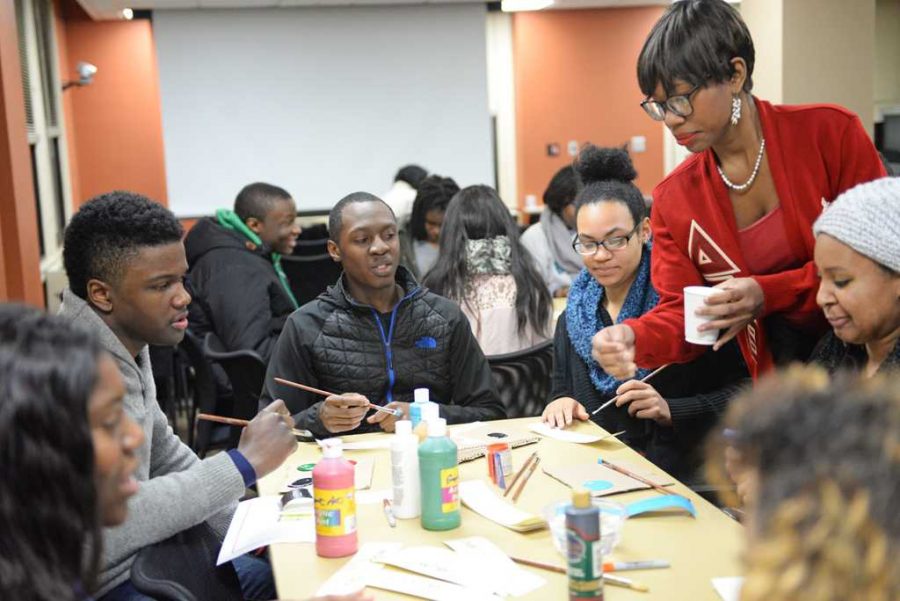In high school, Morgan Cooper-Okerchiri was known as “the funniest black girl you’ll ever meet.”
To her, that wasn’t a compliment.
With nobody else that looked like her at her predominantly white school, she felt isolated, ugly and depressed.
If people could not see her beauty on the outside, Cooper-Okerchiri said, they would never care about her beauty on the inside. She had no one she could confide in.
Cooper-Okerchiri, a senior Africana studies and finance major, read her story aloud from her journal Wednesday to a group of 22 other Pitt students. At Delta Sigma Theta’s event, “My Cry in the Dark,” Vice President Cooper-Okerchiri and several others talked about their struggles with depression as black women.
The two-hour event in the William Pitt Union featured a presentation on mental illness in the black community, discussions and craft making.
“The issue of mental illness in the African-American community needs to come out of the darkness,” Cooper-Okerchiri said.
According to the National Alliance on Mental Illness, black Americans are 20 percent more likely to experience mental illness than white Americans. The student presenters said mental illness symptoms are often brushed aside, so labels like “weak” or “crazy” replace important diagnoses.
From 2008 to 2012, suicide was the ninth leading cause of death in black children, according to a study published this past year in Journal of the American Medical Association.
To address the lack of dialogue, Delta Sigma Theta planned the evening’s activities to encourage an open discussion about mental health. For example, when she was in high school, Cooper-Okerchiri said she covered her mirror and refused to look at her reflection again.
“The discussion was so open,” Lauryn Hood, an undeclared first-year student, said, “and I feel like everyone felt that it was a safe space.”
Cooper-Okerchiri read three journal entries she and other black women struggling with mental illnesses at Pitt wrote. The women wanted to bring attention to the stigmatic attitude around mental illness within their racial community.
She provided discussion questions and asked the audience to reflect on the journal entries, commenting on what stood out to them.
Later in the evening, the audience viewed two videos about stigmas and mental illness in greater detail for black men and women.
The presenters asked the audience members to “break the silence,” so that no one else would have to suffer alone.
“I think this event will hopefully take away the fear of talking about mental illness and acknowledging it,” Joseph Gansallo, a Pitt senior studying information sciences, said.
Gansallo, an Alpha Phi Alpha brother, wanted to show his support for his friends in Delta Sigma Theta by attending the lecture.
The discussion focused on why there are discrepancies within the black community surrounding mental illness. Students brought up that society expects black people, particularly men, to “be strong” and never show emotion or “give into” something like depression.
“I was really happy with the good turnout of black men, they need to hear this just as much as the women,” Cooper-Okerchiri said.
In order to better facilitate a new culture of acceptance of mental illness, Delta Sigma Theta invited a representative from Pitt’s Depression: Talk About It campaign to inform the students where they could turn for help.
The event ended with attendees making DIY chalkboards, bookmarks and mason jars — which they could use to store daily anecdotes — to relax and help them stay positive.
As Cooper-Okerchiri joked about her lack of arts-and-craft skills, she reflected on the evening’s lecture.
“We want people to go away happy,” Cooper-Okerchiri said. “And know that there’s help out there.”


